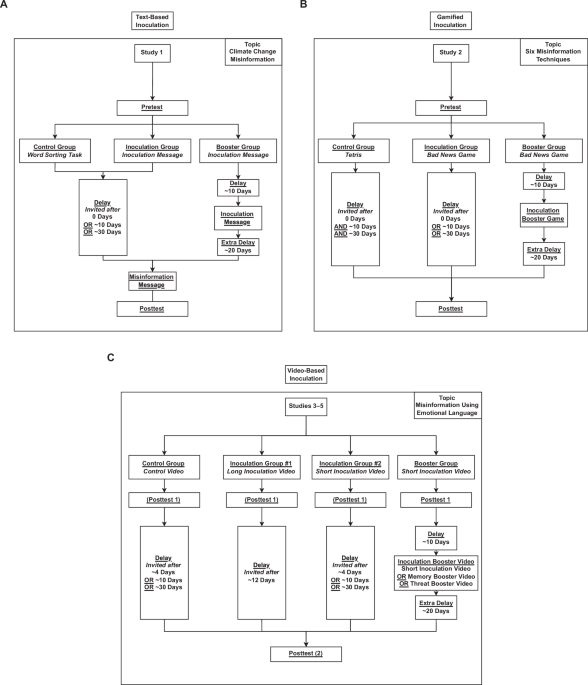Listen to the article
The latest research from Cambridge University has shed new light on how “inoculation” techniques can protect people against misinformation, offering promising strategies for combating false information online. The comprehensive studies, conducted with thousands of participants over multiple time periods, reveal that exposing people to weakened forms of misinformation builds resistance against future manipulation attempts.
The research team, comprised of eight international scholars from the UK and US, conducted five interconnected studies examining how different inoculation methods work and how long their protective effects last. Their findings have significant implications for media literacy campaigns and online platform policies.
In the first study, researchers tested text-based climate change inoculation, showing participants either a control message or an inoculation message that explained common tactics used to misrepresent scientific consensus. This approach proved effective at helping participants identify misinformation about climate change, with some participants receiving “booster” treatments to extend protection.
“We wanted to understand not just whether inoculation works, but why it works and how long the protection lasts,” explained one of the researchers involved in the project. The team measured both participants’ memory of the inoculation content and their motivation to resist misinformation, revealing these as key mechanisms driving effectiveness.
The second study utilized an interactive online game called “Bad News,” where participants assumed the role of fake news creators within a simulated social media environment. By learning misinformation techniques firsthand, participants became significantly better at identifying manipulative content afterward. Researchers also tested a shortened “booster shot” version of the game that reinforced these protective effects.
The final three studies employed video-based inoculation, testing both longer (1:48) and shorter (0:30) videos that warned about emotional manipulation in social media content. These videos proved remarkably effective at helping people distinguish between manipulative and neutral content across various time periods.
“What’s particularly encouraging is that even brief 30-second videos can significantly improve people’s ability to spot manipulation tactics,” noted one researcher. “This suggests that inoculation approaches could be scaled widely without requiring substantial time commitments from users.”
The research also revealed important insights about how inoculation effects decay over time. While protection diminishes in the weeks following intervention, strategically timed booster treatments can maintain resistance. The team tested different booster approaches, finding that some reinforced memory components while others strengthened motivational aspects of resistance.
A particularly noteworthy finding was the effectiveness of approaches that combine both threat awareness (warning people about misinformation) and technique training (teaching specific methods used to mislead). The studies showed that participants not only became better at identifying manipulative content but also reported increased confidence in their abilities to spot misinformation.
The implications extend beyond academic interest. As social media platforms continue grappling with misinformation challenges, these findings suggest practical, scalable interventions that could be implemented across various contexts. The research provides evidence-based strategies that media organizations, educational institutions, and technology companies could deploy to strengthen public resilience against false information.
By testing inoculation approaches across multiple topics, formats, and timeframes, the Cambridge team has established robust evidence that pre-emptively exposing people to misinformation techniques offers a promising path forward in the battle against digital deception.
Fact Checker
Verify the accuracy of this article using The Disinformation Commission analysis and real-time sources.




9 Comments
I’m curious to learn more about the different inoculation methods tested and how they compared in effectiveness. Strengthening people’s ability to identify manipulation tactics seems crucial for combating online misinformation.
The multi-study approach and international collaboration behind this work lend it a lot of credibility. I’m eager to see how these findings can be translated into practical interventions and policy recommendations.
This study highlights the importance of proactive, evidence-based strategies for improving digital literacy and critical thinking skills. Equipping people to recognize manipulation is key to a healthier information ecosystem.
This research aligns well with the growing emphasis on improving digital literacy and critical thinking skills. Empowering people to recognize manipulation tactics is crucial for building societal resilience to misinformation.
Interesting research on using inoculation techniques to build resistance against misinformation. The long-term protective effects are particularly promising for media literacy campaigns.
Exposing people to weakened forms of misinformation to build resilience is a clever approach. I wonder how this could be applied to other domains beyond climate change, like health or political topics.
Kudos to the research team for this comprehensive, multi-study investigation. Gaining a deeper understanding of effective inoculation techniques is crucial for tackling the spread of online misinformation.
While the climate change context is important, I’m curious to see if these inoculation approaches could be generalized to other polarized or controversial topics. The potential applications seem quite broad.
The long-term protective effects of these inoculation methods are really impressive. Developing durable resistance to misinformation could have far-reaching benefits for individuals and society.